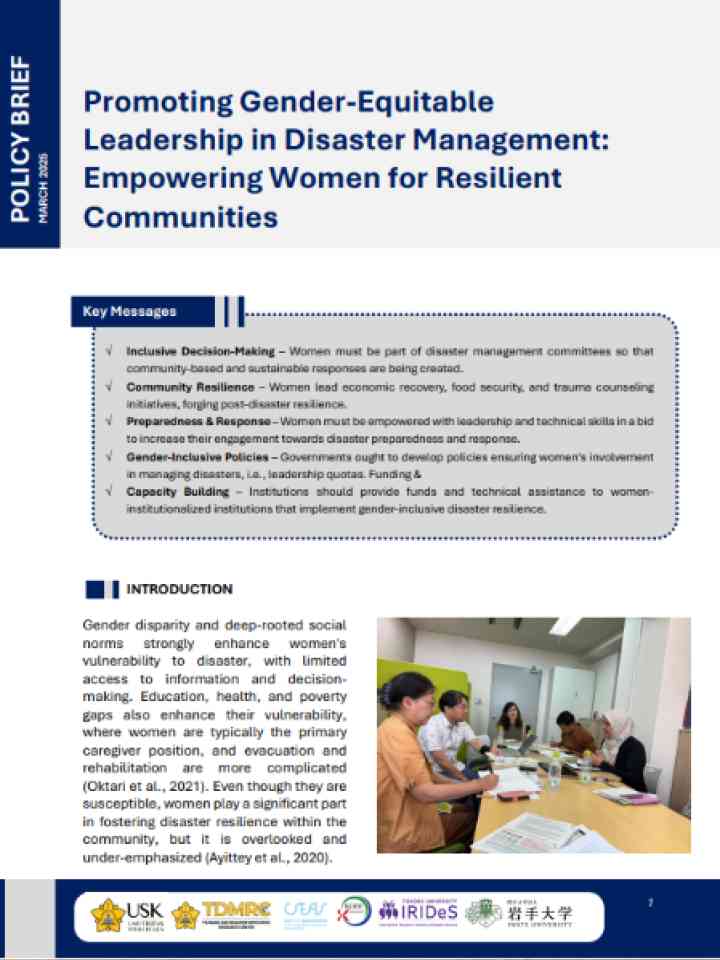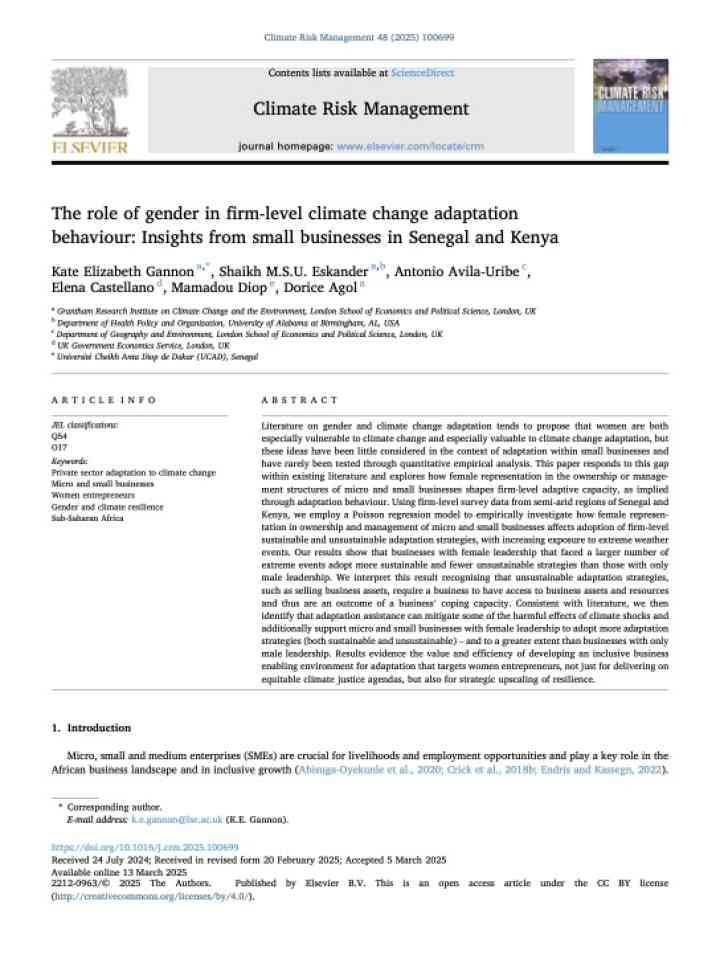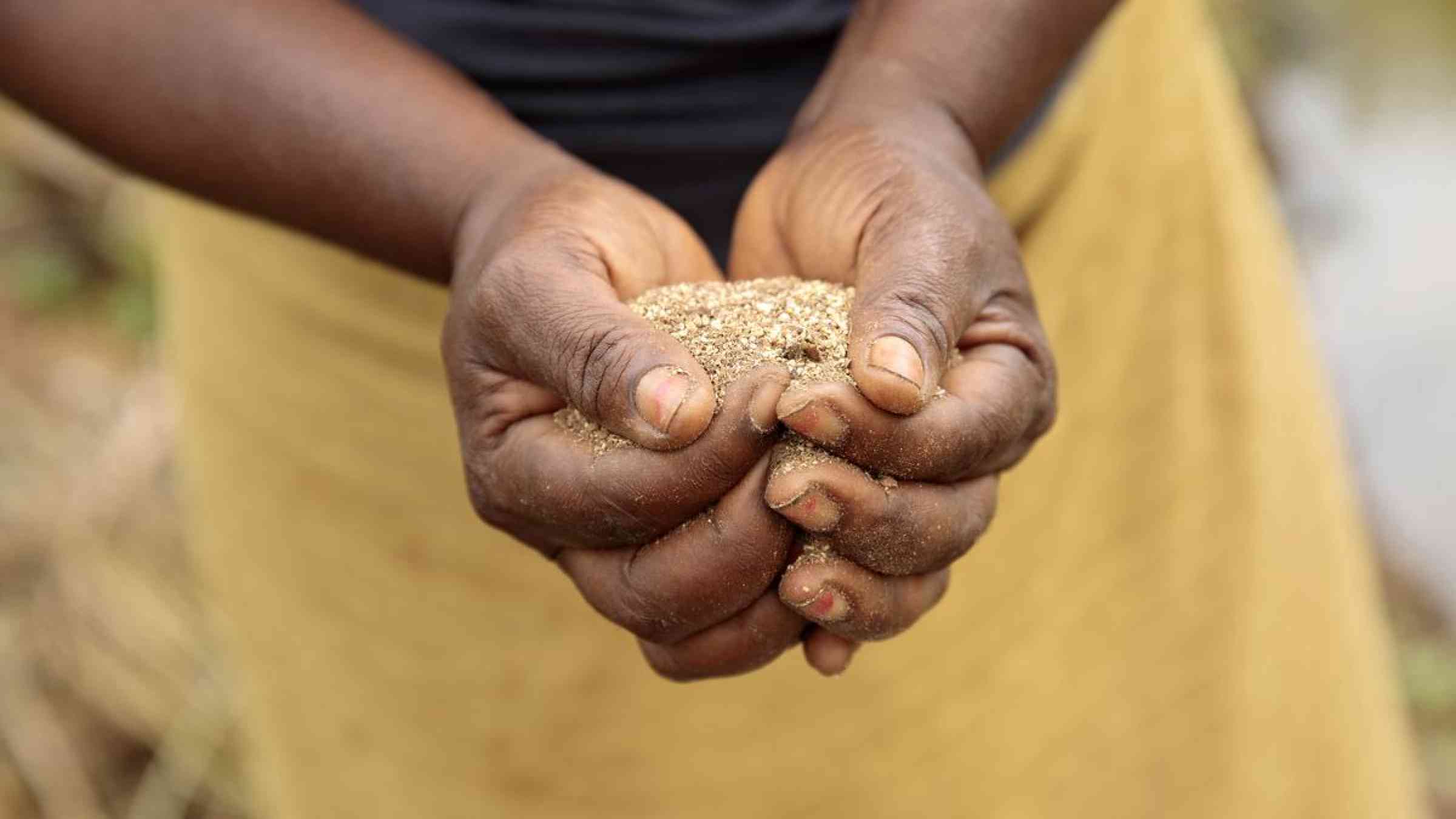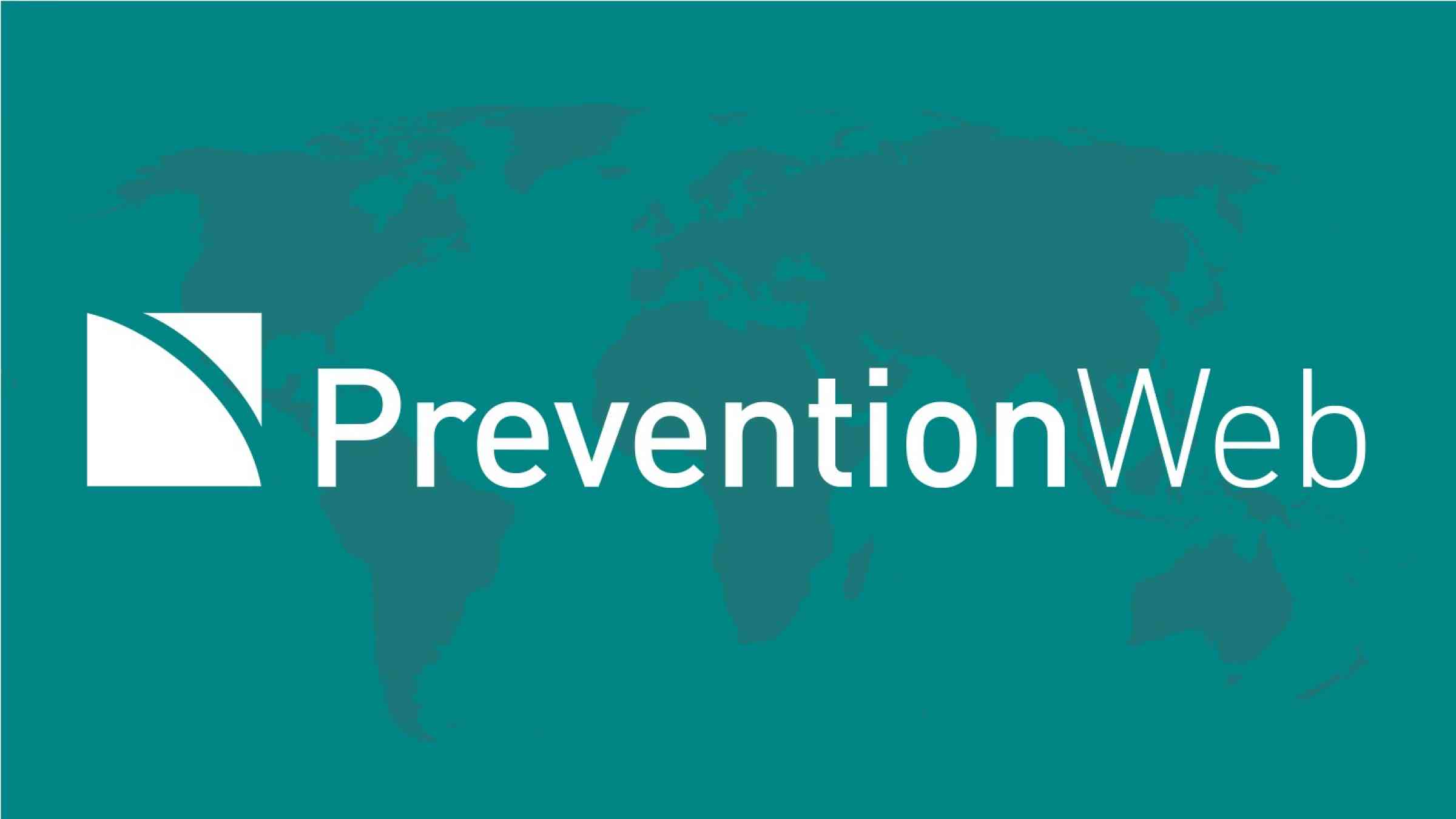Gender
Designing, resourcing and implementing gender-sensitive disaster risk reduction policies, plans and programmes. raising awareness of gendered vulnerabilities of men, women and LGBTs, and promoting inclusion and leadership of women and gender minorities in DRR.
The Gender Action Plan to support implementation of the Sendai Framework for Disaster Risk Reduction 2015-2030 (Sendai GAP) has been launched. The Sendai GAP identifies nine key objectives related to the four priorities of the Sendai Framework, and 33 recommended actions promote gender equality and the empowerment and leadership of women and gender stakeholders in disaster risk reduction. Access the GAP








